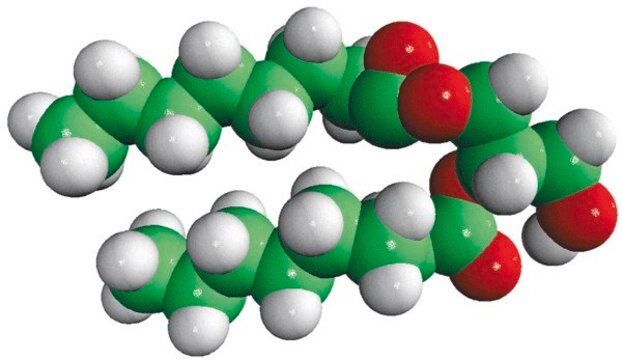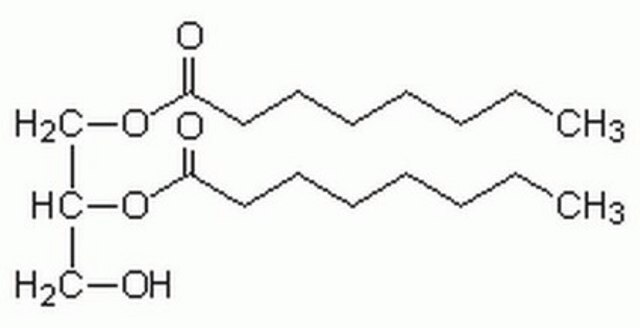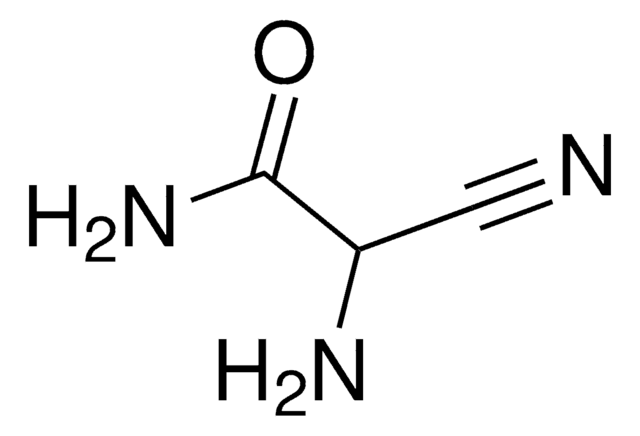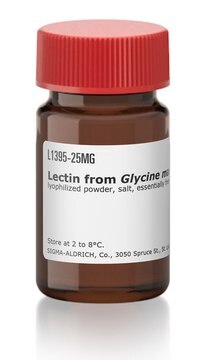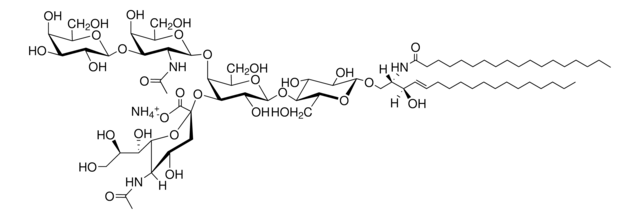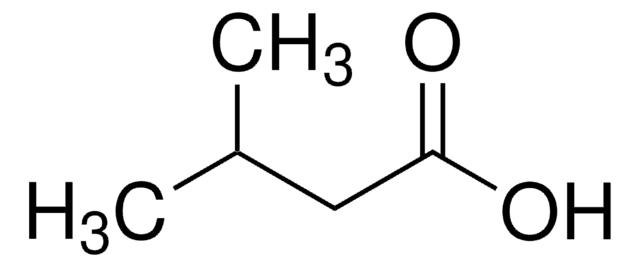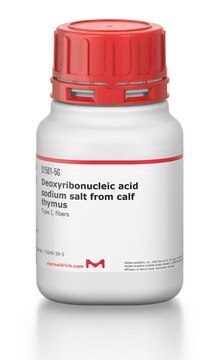800800C
Avanti
08:0 DG
1,2-dioctanoyl-sn-glycerol, chloroform solution
Synonym(s):
DG(8:0/8:0/0:0)
About This Item
Recommended Products
Assay
>99% (TLC)
form
liquid
packaging
pkg of 1 × 5 mL (800800C-10mg)
pkg of 1 × 5 mL (800800C-25mg)
manufacturer/tradename
Avanti Polar Lipids 800800C
concentration
2 mg/mL (800800C-10mg)
5 mg/mL (800800C-25mg)
lipid type
neutral lipids
neutral glycerides
shipped in
dry ice
storage temp.
−20°C
InChI
1S/C19H36O5/c1-3-5-7-9-11-13-18(21)23-16-17(15-20)24-19(22)14-12-10-8-6-4-2/h17,20H,3-16H2,1-2H3/t17-/m0/s1
InChI key
ZQBULZYTDGUSSK-KRWDZBQOSA-N
General description
Diacylglycerol mimicks the effects of the tumor-promoting compounds phorbol esters.
Application
Biochem/physiol Actions
Packaging
Storage and Stability
Other Notes
Dry samples of diacylglycerol in chloroform, using a stream of nitrogen. Dissolve the residue in an appropriate volume of ethanol or DMSO, then dilute to the desired aqueous medium.
Most biological responses saturate at 20 to 250 μM sn-1,2-dioctanoylglycerol. Only sn-1,2 isomers appear to be active.
Legal Information
Signal Word
Danger
Hazard Statements
Precautionary Statements
Hazard Classifications
Acute Tox. 3 Inhalation - Acute Tox. 4 Oral - Aquatic Chronic 3 - Carc. 2 - Eye Irrit. 2 - Repr. 2 - Skin Irrit. 2 - STOT RE 1 - STOT SE 3
Target Organs
Central nervous system
Storage Class Code
6.1D - Non-combustible, acute toxic Cat.3 / toxic hazardous materials or hazardous materials causing chronic effects
WGK
WGK 3
Flash Point(F)
does not flash
Flash Point(C)
does not flash
Regulatory Listings
Regulatory Listings are mainly provided for chemical products. Only limited information can be provided here for non-chemical products. No entry means none of the components are listed. It is the user’s obligation to ensure the safe and legal use of the product.
EU REACH Annex XVII (Restriction List)
Certificates of Analysis (COA)
Search for Certificates of Analysis (COA) by entering the products Lot/Batch Number. Lot and Batch Numbers can be found on a product’s label following the words ‘Lot’ or ‘Batch’.
Already Own This Product?
Find documentation for the products that you have recently purchased in the Document Library.
Our team of scientists has experience in all areas of research including Life Science, Material Science, Chemical Synthesis, Chromatography, Analytical and many others.
Contact Technical Service